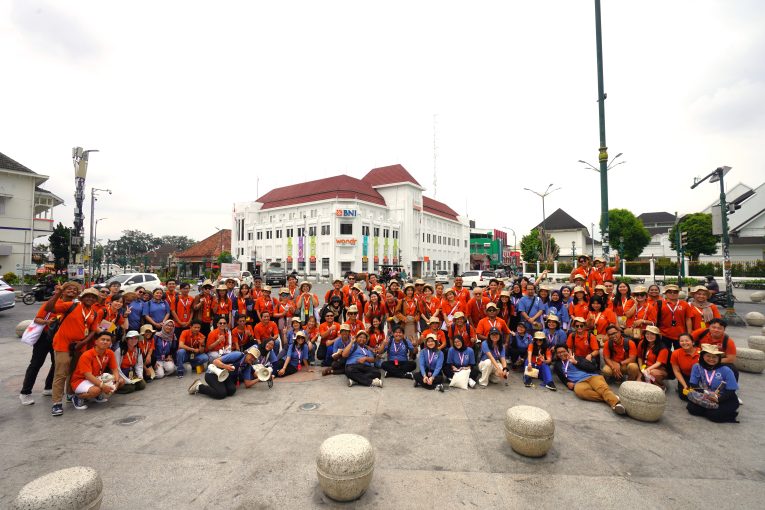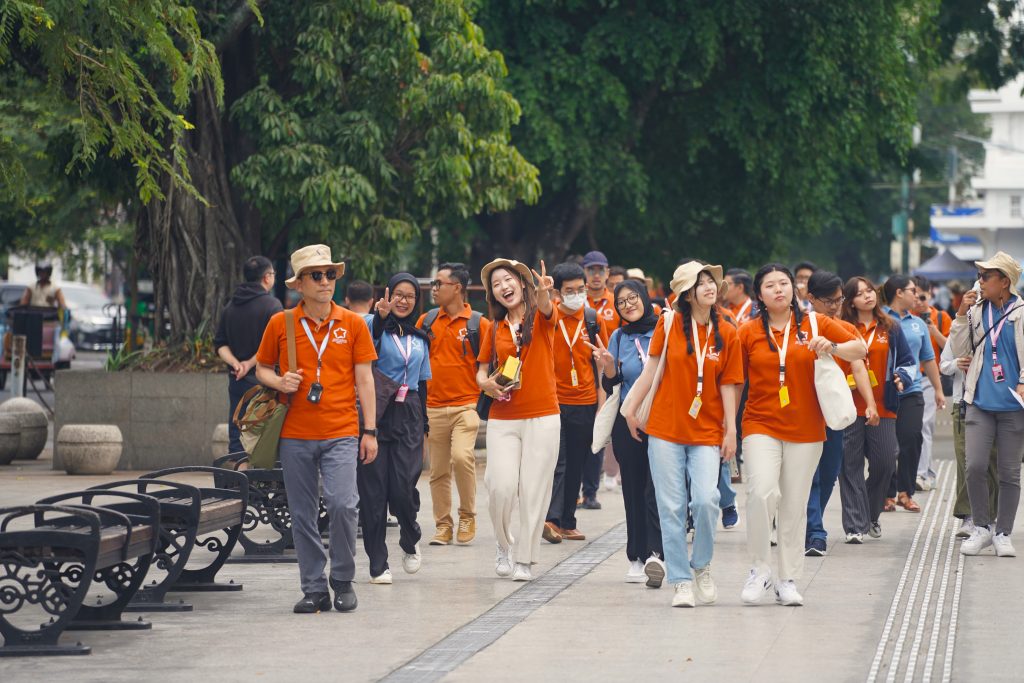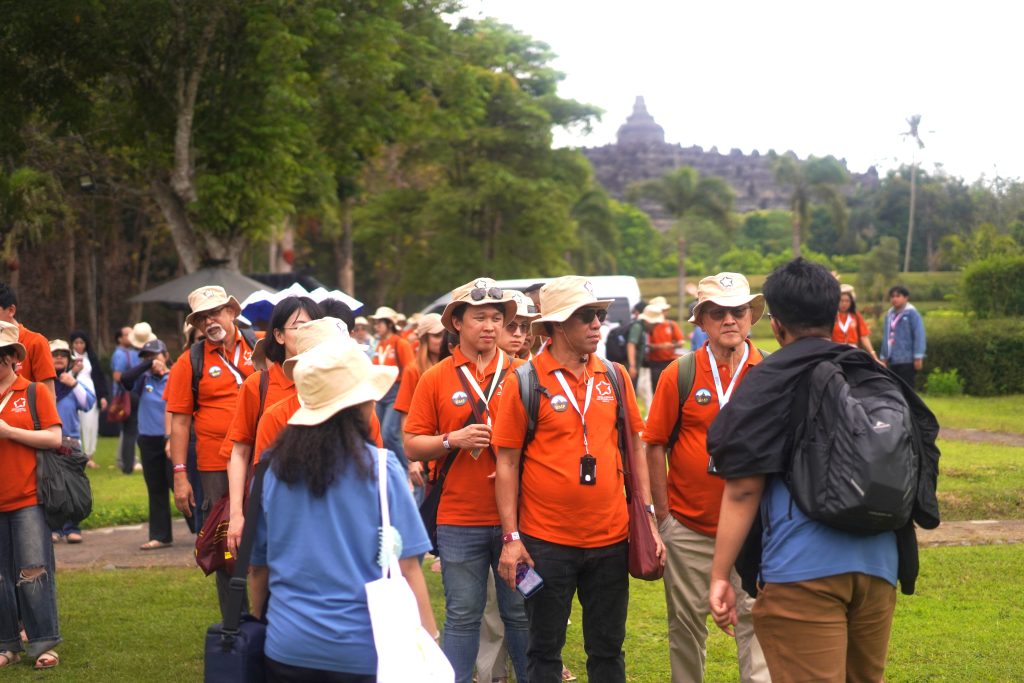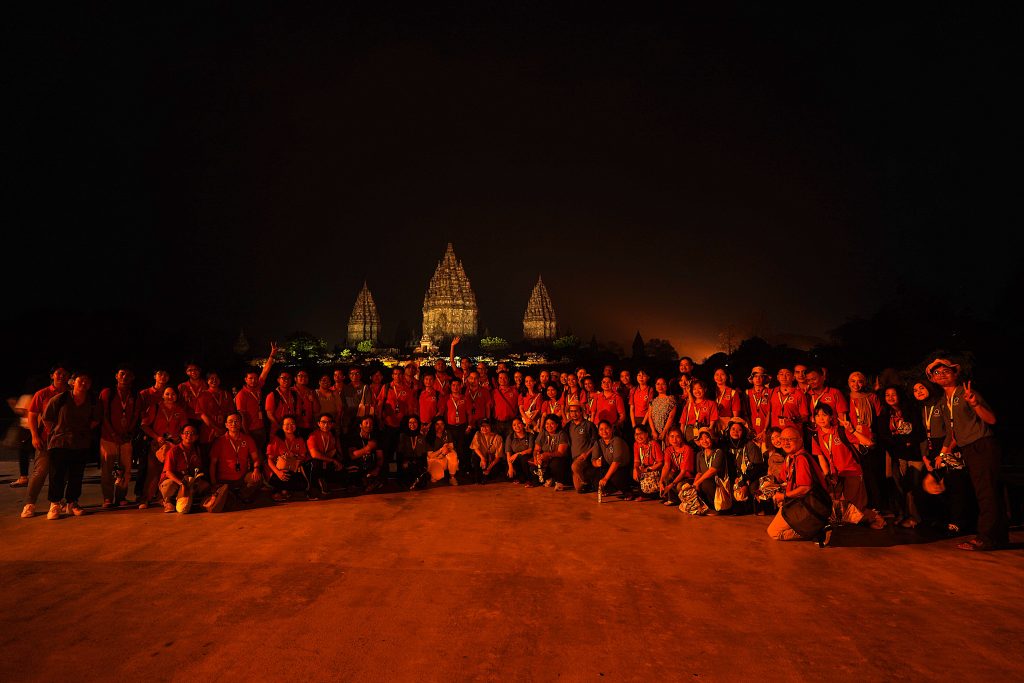
Yogyakarta, Indonesia – 10th September 2024: The Center for Southeast Asian Social Studies (CESASS) at Universitas Gadjah Mada, in collaboration with the Ministry of Foreign Affairs and the Ministry of Education, Culture, Research, and Technology, with support from the ASEAN Secretariat, hosted the second day of the event with an excursion aimed at introducing participants, including students and experts, to Yogyakarta’s World Heritage sites. The day’s itinerary featured a walk along the Philosophical Axis, which stretches from the Golong-Gilig Monument (Tugu) to the 0km monument.

The Philosophical Axis is part of Yogyakarta’s larger Cosmological Axis, symbolizing the spiritual relationship between humanity and the divine. This alignment represents the connection between humans and God, with the Merapi-Keraton-Southern Coast axis embodying the macrocosm, linking humans to the divine, and the Tugu Pal Putih-Keraton-Krapyak axis symbolizing the microcosm, reflecting human interaction with the environment. These alignments are deeply rooted in Yogyakarta’s traditional spatial planning, rituals, and ceremonies, which seamlessly blend Islamic and Javanese influences.

Following the tour of the Philosophical Axis, participants visited the Borobudur Temple in Magelang, Central Java. Borobudur is a Buddhist temple from the Sailendra Dynasty, constructed under the reign of King Samaratungga around 824 AD. It remains an important spiritual site for Buddhist monks throughout Southeast Asia, particularly during Vesak Day celebrations. After spending a significant portion of the day exploring Borobudur, participants proceeded to the Prambanan Temple to witness the Ramayana Ballet (Sendratari Ramayana).

Even though it was raining heavily, the participants’ enthusiasm remained undiminished as they enjoyed the show. One testimony from Lorn, Cambodia, summed up the experience: “The Ramayana Ballet and Temple was really similar to the one in Cambodia. I believe we have the shared culture among us. Watching the ballet really reminds me of my country.”
About CESASS UGM:
The Center for Southeast Asian Social Studies (CESASS) at Universitas Gadjah Mada (UGM) is a leading research center dedicated to the interdisciplinary study of Southeast Asia. CESASS UGM conducts research, provides academic programs, and promotes knowledge exchange to deepen understanding of Southeast Asia’s diverse cultures, societies, and development challenges.
About UGM:
Universitas Gadjah Mada (UGM) is a prestigious university located in Yogyakarta, Indonesia. It is renowned for its academic excellence, research contributions, and commitment to community engagement. UGM strives to nurture global-minded scholars and leaders who will contribute to the advancement of society.
Writer: Muwalliha Syahdani
Pusat Studi Sosial Asia Tenggara UGM
pssat@ugm.ac.id
(0274) 589658
